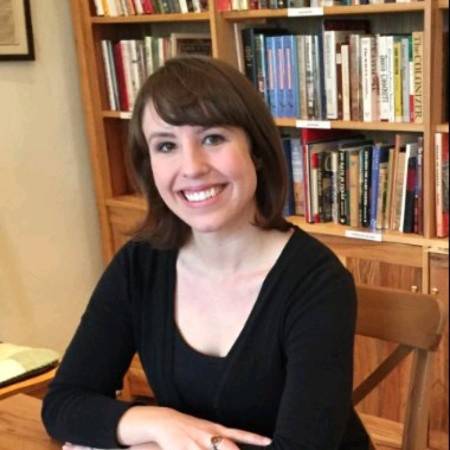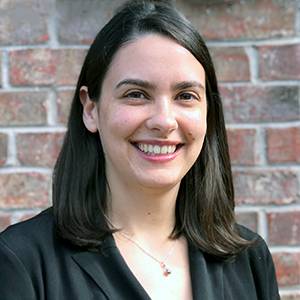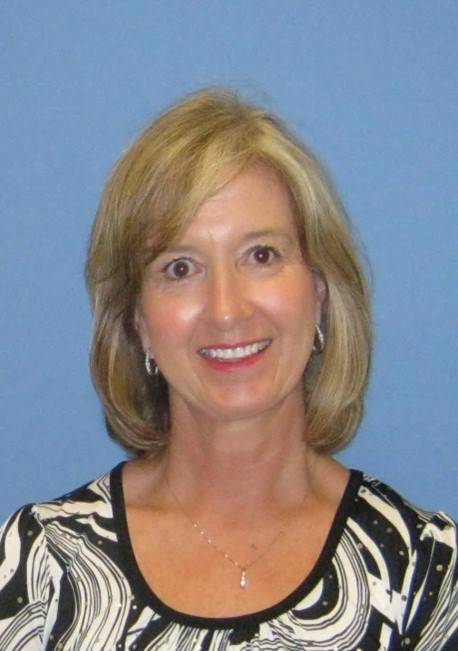Archiving Neurodiversity at the Austin State Hospital, 1856-Today:
A Conversation with Jenna Cooper and Elizabeth Stauber
Thursday, October 21, 2021 | 12:30 pm
Online via Zoom and In Person | Brazos Hall
A Conversation with Jenna Cooper and Elizabeth Stauber
Thursday, October 21, 2021 | 12:30 pm
Online via Zoom and In Person | Brazos Hall
The Austin State Hospital is the longest-standing asylum west of the Mississippi and the first to incorporate racially designated spaces for African Americans, Whites and ethnic Mexicans. As such, the archives in the Austin State Hospital provide one entry into the history and treatment of race and neurodiversity in Texas from before the Civil War. In this presentation, Cooper and Stauber will talk about their experience co-chairing a workgroup tasked with developing recommendations for meaningful ways to preserve the Austin State Hospital’s history and to share how the campus and treatment for mental illness have evolved since 1856. The History of ASH Work Group focused on four recommendations to provide ways to manage the project, preserve collections, share ASH’s story through physical and digital interpretation, and develop funding opportunities to support efforts to make the hospital’s history more accessible, user friendly and respectful of the many ethnic, gender, neurodiverse and disability communities who spent time voluntarily and involuntarily within asylum walls and property. They will also point to the ways mental illness treatments at this Texas institution also indexed differential attitudes toward the shared humanity of Black, Latina/o/x and Anglo communities by community, staff and state authorities.
 Jenna Cooper is the Records Analyst for the Austin Public Library and assists with the appraisal and processing of City of Austin records at the Austin History Center. She has a Master of Science in Information Studies from the University of Texas at Austin and has worked and volunteered for a variety of archives, cultural centers and museums in Austin for the past decade. Jenna is also a leader in community preservation and cultural heritage projects; she is serving as co-chair of the Society of Southwest Archivist’s State Partnerships and Outreach Committee, is the point person for disability reference services at the Austin History Center and managed the Austin Archives Bazaar’s social media presence and publicity from 2017-2020.
Jenna Cooper is the Records Analyst for the Austin Public Library and assists with the appraisal and processing of City of Austin records at the Austin History Center. She has a Master of Science in Information Studies from the University of Texas at Austin and has worked and volunteered for a variety of archives, cultural centers and museums in Austin for the past decade. Jenna is also a leader in community preservation and cultural heritage projects; she is serving as co-chair of the Society of Southwest Archivist’s State Partnerships and Outreach Committee, is the point person for disability reference services at the Austin History Center and managed the Austin Archives Bazaar’s social media presence and publicity from 2017-2020.
 Elizabeth Stauber stewards the Hogg Foundation’s educational mission to document, archive and share the foundation’s history, which has become an important part of the histories of mental and public health in Texas, and the evolution of mental health discourse nationally and globally. Elizabeth provides access to the Hogg Foundation’s research, programs, and operations through the publicly accessible archive. She has a Master of Science in Information Studies from The University of Texas at Austin, and has helped many organizations preserve their analog and electronic records for future generations—from museums to news organizations.
Elizabeth Stauber stewards the Hogg Foundation’s educational mission to document, archive and share the foundation’s history, which has become an important part of the histories of mental and public health in Texas, and the evolution of mental health discourse nationally and globally. Elizabeth provides access to the Hogg Foundation’s research, programs, and operations through the publicly accessible archive. She has a Master of Science in Information Studies from The University of Texas at Austin, and has helped many organizations preserve their analog and electronic records for future generations—from museums to news organizations.
 Diedra D.D. Clark accepted the position of Historic Preservation & Grant Coordinator for the HHSC State Hospital System in May of 2021. Serving in an entirely new direction for the agency, this position highlights system preservative efforts supportive of the foundation for education and public programming, while sharing information about the architectural and cultural legacy within the mental health community and recovery. She is currently working towards construction of museums depicting the history of mental health recovery in Texas.
Diedra D.D. Clark accepted the position of Historic Preservation & Grant Coordinator for the HHSC State Hospital System in May of 2021. Serving in an entirely new direction for the agency, this position highlights system preservative efforts supportive of the foundation for education and public programming, while sharing information about the architectural and cultural legacy within the mental health community and recovery. She is currently working towards construction of museums depicting the history of mental health recovery in Texas.
Prior to accepting this position, D.D. spent the last eight years as Director of Community Relations & Peer Support Services at Rusk State Hospital. From 2003 through 2013, D.D. was employed as a Mental Health Liaison for the Texas prison system, preceded by twelve years in Juvenile Probation supervision. She holds a Bachelors Degree in Criminal Justice and Masters Degree in Executive Healthcare Administration, from the University of Texas at Tyler and is a 2014 graduate of the HHS Aspiring Leadership Academy.
Her professional commitments include erasing the stigma of mental illness and advocacy in program development for the underserved.
Enjoying just about anything that includes the outdoors, she can be found on any given day sweating profusely but with a smile on her face kayaking, landscaping, surf fishing and practicing at being the coolest GranDD in the world :) For the last twelve and a half years she has spent Wednesday evenings working with an At Risk Youth Group which consists of a population very dear to her heart, and that inspire her in ways "words can't begin to capture."